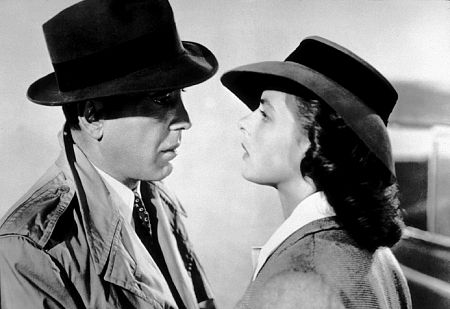Love that Binds
 I’ve been alive for almost 26 years. Let’s say that love has been in the picture since I was 18. During those 8 years, I claim to have been in love twice for a total of about 3 years. (A close friend of mine argues that I was in love a third time, which would push the total to 5 years out of 8, but I disagree that it was love.) I’ve never had my heart broken, but it has been said that I’ve left two broken hearted. Presumably, then, others have loved me for slightly more than 3 years over that same 8 year period. Let’s assume that I won’t get married until my mid-30s, or another 8 years. At this pace, I’ll fall in love another 2 times, breaking one more heart, while binding myself for all eternity to the other. I wondered if this was normal, but I didn’t imagine I’d be able to find statistics on this.
I’ve been alive for almost 26 years. Let’s say that love has been in the picture since I was 18. During those 8 years, I claim to have been in love twice for a total of about 3 years. (A close friend of mine argues that I was in love a third time, which would push the total to 5 years out of 8, but I disagree that it was love.) I’ve never had my heart broken, but it has been said that I’ve left two broken hearted. Presumably, then, others have loved me for slightly more than 3 years over that same 8 year period. Let’s assume that I won’t get married until my mid-30s, or another 8 years. At this pace, I’ll fall in love another 2 times, breaking one more heart, while binding myself for all eternity to the other. I wondered if this was normal, but I didn’t imagine I’d be able to find statistics on this. I did pick up A.C. Grayling’s “Meditations for the Humanist: Ethics for a Secular Age.” It’s fantastic so far. On his chapter on love, he notes that love is the most frequent topic of poems and songs (and probably this blog), but “paradoxically, the official line is that apart from a few experimental feints in early adulthood, love’s true heights should only be experienced once, with lifelong bonding as the appropriate outcome. Anyone who claims to fall in love frequently is deemed irresponsible, and with some justification: for it is such a time consuming, exhausting, ecstatic, painful, transforming business that requires a long recovery – in some cases, indeed, whole lifetimes.”
I did pick up A.C. Grayling’s “Meditations for the Humanist: Ethics for a Secular Age.” It’s fantastic so far. On his chapter on love, he notes that love is the most frequent topic of poems and songs (and probably this blog), but “paradoxically, the official line is that apart from a few experimental feints in early adulthood, love’s true heights should only be experienced once, with lifelong bonding as the appropriate outcome. Anyone who claims to fall in love frequently is deemed irresponsible, and with some justification: for it is such a time consuming, exhausting, ecstatic, painful, transforming business that requires a long recovery – in some cases, indeed, whole lifetimes.” So, I suppose that makes me irresponsible. Unless of course, what I deemed to be “love” was really just one of those “experimental feints” endemic to young adulthood. Maybe I have yet to experience the “love’s true heights.” I’m reminded of the Iron and Wine song “Such Great Heights” (Yes, I know it’s a Postal Service cover, but Iron and Wine’s version is way better, so I’ll refer to it as their song, thank you.)
So, I suppose that makes me irresponsible. Unless of course, what I deemed to be “love” was really just one of those “experimental feints” endemic to young adulthood. Maybe I have yet to experience the “love’s true heights.” I’m reminded of the Iron and Wine song “Such Great Heights” (Yes, I know it’s a Postal Service cover, but Iron and Wine’s version is way better, so I’ll refer to it as their song, thank you.)I am thinking it's a sign that the freckles
in our eyes are mirror images and when
we kiss they're perfectly aligned
and I have to speculate that God himself
did make us into corresponding shapes like
puzzle pieces from the clay…
they will see us waving from such great
heights, "come down now," they'll say
but everything looks perfect from far away,
"come down now," but we'll stay.
I find the possibility of greater heights hard to imagine. Rather, my sense of the matter is this. Of the two times I’ve been in love, I believe that was strongly as I could feel for someone. I can’t imagine one day feeling so strongly for a new person that my past experiences will be bumped down to mere “feints.” In that sense, I believe my love was sincere. I don’t think it was ‘peculiar’ though, because I have faith that I will feel it again, if not two of three more times. I also believe everyone feels that same way at some point in their lives. In that sense, it’s popular love.
 Of the great heights version, I’m reminded of two of my favorite treatises on love, Gabriel Garcia Marquez’s Love in the Time of Cholera and Johann Wolfgang von Goethe’s Sorrows of Young Werther. Both of the stories feature the type of love
Of the great heights version, I’m reminded of two of my favorite treatises on love, Gabriel Garcia Marquez’s Love in the Time of Cholera and Johann Wolfgang von Goethe’s Sorrows of Young Werther. Both of the stories feature the type of love  from which it takes ‘whole lifetimes’ to recover. While I realize such a love does occur, I’m not sure if I’ll ever feel it, since I’m so overly-rational. I’m also quite confident that almost no one ever does experience it, each for their own reasons. It’s uncommon love. I’m even tempted to go so far as to say that I hope I never feel it.
from which it takes ‘whole lifetimes’ to recover. While I realize such a love does occur, I’m not sure if I’ll ever feel it, since I’m so overly-rational. I’m also quite confident that almost no one ever does experience it, each for their own reasons. It’s uncommon love. I’m even tempted to go so far as to say that I hope I never feel it.So, where does that leave us? If we conclude that popular love is all I’m capable (or willing) to experience, and further, that this is the case for the great majority of people, then what’s to make of the fact that this form of love only appears in young adulthood? My first instinct is to conclude that it doesn’t bode well for middle age. But maybe the contrary is true.
 Grayling points out that there are lots of reasons to get married. In the old days (the Christian Era), people got married to unite families. As time went on, people tended to marry out of a sense of camaraderie; they were life partners. He cites to Jane Austen for an example of this. Grayling further suggests that Hollywood of the 1930’s – 1950’s was responsible for popularizing this notion of young love maturing through marriage into comradeship. Hollywood said that you could have your cake and eat it, too. As divorce rates suggest, maybe you can’t. Maybe, realistically speaking, you have to choose. And gun to my head, I’d choose comradeship. It seems a better long term investment. And, if there’s one thing I’ve observed about older people, even successfully married ones don’t burn the same way young people do. Point being, whether you choose to give it up at this age or not, it appears nature will eventually take it from you, whether you like it or not. And at that point, you’ll be best off, if you find yourself next to your best friend.
Grayling points out that there are lots of reasons to get married. In the old days (the Christian Era), people got married to unite families. As time went on, people tended to marry out of a sense of camaraderie; they were life partners. He cites to Jane Austen for an example of this. Grayling further suggests that Hollywood of the 1930’s – 1950’s was responsible for popularizing this notion of young love maturing through marriage into comradeship. Hollywood said that you could have your cake and eat it, too. As divorce rates suggest, maybe you can’t. Maybe, realistically speaking, you have to choose. And gun to my head, I’d choose comradeship. It seems a better long term investment. And, if there’s one thing I’ve observed about older people, even successfully married ones don’t burn the same way young people do. Point being, whether you choose to give it up at this age or not, it appears nature will eventually take it from you, whether you like it or not. And at that point, you’ll be best off, if you find yourself next to your best friend.Not surprisingly then, the Greeks put the love of friendship on a higher plane than romantic love. And if they were right, then middle age doesn’t look so bad, and moreover, maybe you will see me, and others like me, ‘waving from such great heights’ after all... And don't bother asking, because I'll be old and crotchety, and I ain't coming down!

0 Comments:
Post a Comment
<< Home